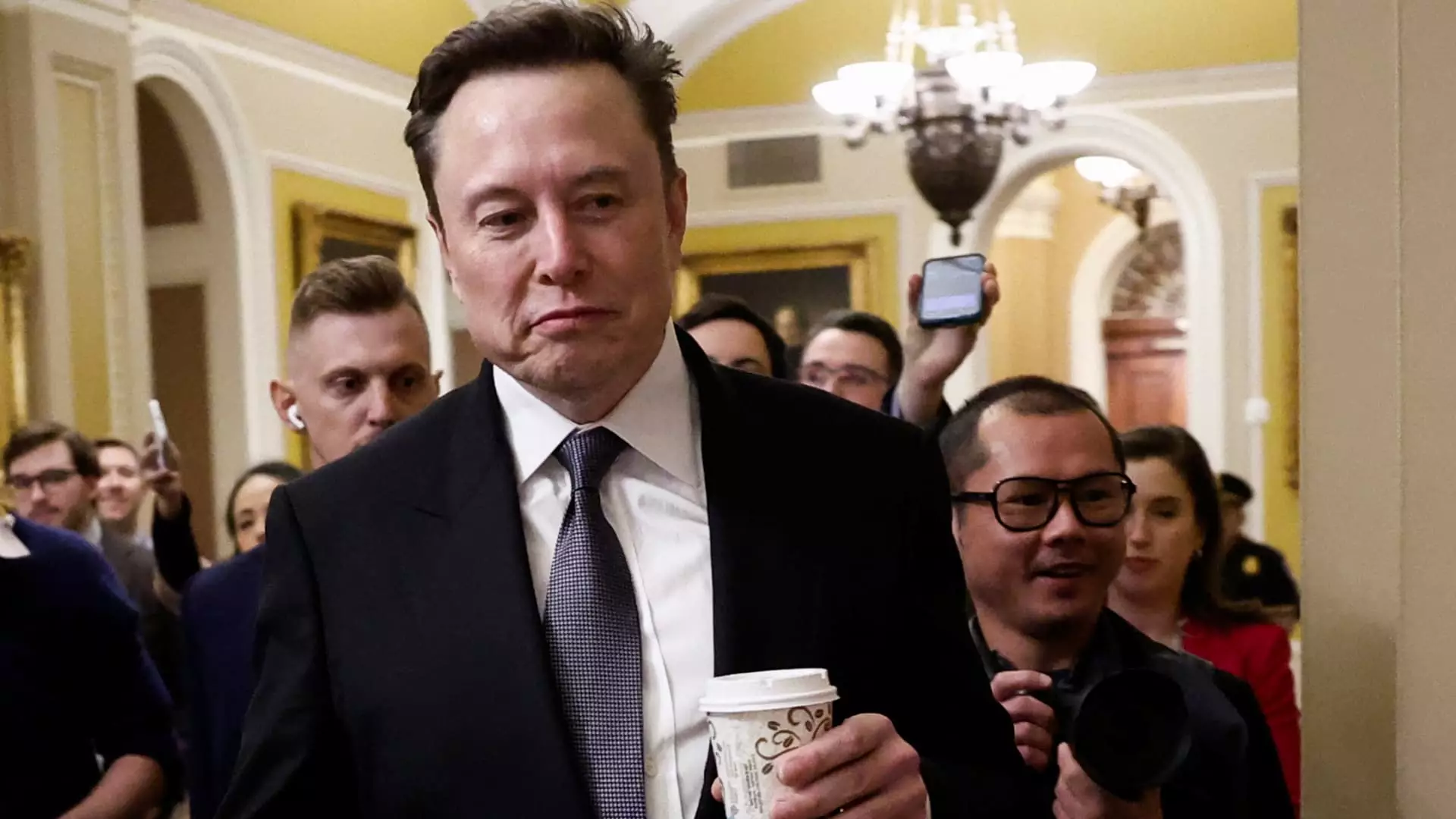Easterly Government Properties Inc. (NYSE: DEA) finds itself in a precarious position as its stock continues to descend in the aftermath of the recent U.S. presidential election. Following the market’s response to new government initiatives, the firm has experienced a significant decline of 12%, raising concerns among investors regarding the sustainability of its revenue stream. The company has a unique focus on government leases, predominantly serving federal projects that are now under scrutiny. The critical nature of its business model is coming under fire as a new advisory body, informally dubbed DOGE, led by influential figures like Elon Musk and Vivek Ramaswamy, poses a potential threat to federal budgets.
The Department of Government Efficiency (DOGE) has set an ambitious goal to cut an unprecedented $500 billion from federal spending. With Easterly’s revenue heavily reliant on government contracts—accounting for an overwhelming 98% from real estate leases—this initiative creates an environment filled with uncertainty for the company’s future. CEO Darrell Crate attempts to convey the importance of their properties, which include crucial federal facilities like Veterans Affairs medical centers and FBI office spaces. In an interview with CNBC, Crate argued for the intrinsic value of these buildings, emphasizing that many of them serve missions aligned with government priorities that the current administration may not want to jeopardize.
However, market analysts remain skeptical, indicating that while certain leases may be critical to national security and public service, there could still be areas within Easterly’s portfolio ripe for budget cuts. Analysts from investing firms have expressed caution, suggesting that market reactions to the DOGE initiative could derail Easterly’s profitability if spending cuts extend to their contracts.
Amidst this uncertainty, one aspect of Easterly’s financial strategy continues to raise eyebrows: its consistent dividend payment of 27 cents per share, which translates to a striking 9% yield. Analysts like John Kim from BMO Capital Markets, who maintain sell ratings on the stock, have criticized this dividend as excessive, suggesting that a reduction might be prudent given the current economic climate. The persistent commitment to paying high dividends, despite financial pressures and potential revenue diminishment, casts doubt over the company’s strategic financial management.
Conversely, some analysts, including Jonathan Hughes from Raymond James, argue that concerns regarding dividend sustainability may be overstated and reflect a broader fiscal hesitance rather than concrete financial distress. This divide in opinions underscores the mixed sentiments held by investors and analysts alike regarding Easterly’s ability to navigate the potential fallout from government spending cuts and the sustainability of its financial practices.
Despite the waves of adversity, Crate expresses an optimistic outlook regarding the future interplay between government operations and private-sector partnerships. He emphasizes that his firm represents a viable model to diminish waste within government spending and improve efficiency. Furthermore, with connections to the incoming administration, facilitated by his brother Bradley Crate’s role in Trump’s campaign, there exists potential for Easterly to leverage its position to develop a more favorable operating environment.
Nonetheless, whether Crate’s optimism can translate into tangible results remains to be seen. As the stock continues to experience downward pressure, the call for clearer messaging and an articulated mission becomes even more pressing. The company must carefully navigate its communications to reinforce confidence among investors and make a case for its ongoing relevance within the government infrastructure landscape.
Easterly Government Properties is at a crossroads where the interplay between government policy, economic viability, and investor confidence presents both challenges and opportunities. The firm’s heavy exposure to government leases places it in a unique, yet precarious position amidst an environment of potential fiscal austerity. As the company seeks to adapt to the evolving economic landscape, it must remain vigilant in addressing investor concerns while simultaneously advocating for its essential role in governmental operations. The forthcoming months will be pivotal in determining whether Easterly can withstand external pressures and emerge as a cornerstone of efficient public service infrastructure—or if it will succumb to the uncertainties of federal spending cuts.

